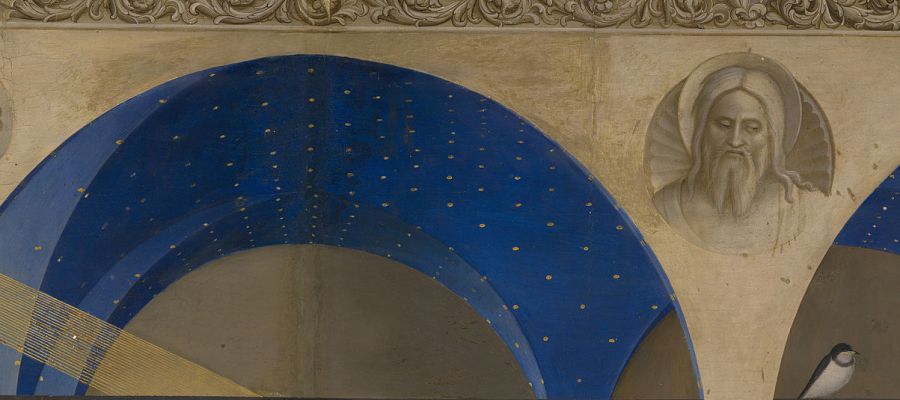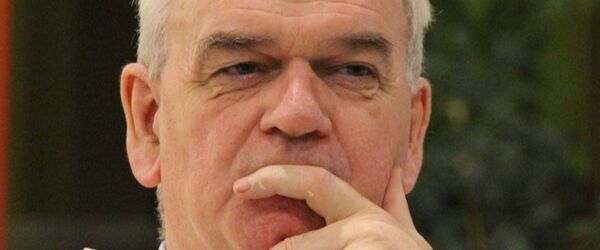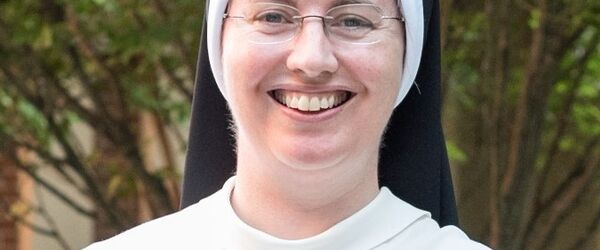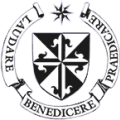
BA (Honours) in Theology (Level 8)
Our BA (Honours) in Theology consists of 17 modules offered over four stages. The course begins with the short, free of charge 'Learning to Learn' module introducing students to distance learning. Then each stage comprises four modules spread over two 15 week semesters, two modules per semester. Alternatively, students may study one module per semester; but it will take twice as long to complete the full course (Level 8, NFQ; 240 ECTS credits).
You can begin your studies with in either spring or autumn.
Prospectus
Click Here to download the BA (Hons) in Theology prospectus.
Modules
These are the modules available in each semester. Click each module title to view its details.
Spring
This short, introductory module demonstrates how distance learning fits in with the human experience of lifelong learning. It shows how learning styles are quite personal, and involve a great deal of reflection and self-appraisal. Reading is important, as is the discipline of writing assignments. The module also touches on study skills, time management and examination techniques. Every student must take this module to begin studying with us. There is no fee for this module.
The Scripture module begins with Genesis chapters 1-11 and shows how this text is seminal to all subsequent pages of the Bible. The student is introduced to the five books of the Pentateuch and to the early history of the Jewish people. The unique place of prophecy in the Hebrew Scriptures is examined. The four gospels, together with the letters of St John and St Paul, form the main focus of the New Testament study. The final part of this module analyses the critical tools developed by scripture scholars to interpret biblical texts. The methods outlined here are essential prerequisites for the deeper study of the Bible undertaken in later modules.
This module examines the need for theologians to study the great philosophers, not least because these philosophers have exercised an indelible influence on the development of theology. But it also outlines the questions being asked by philosophers independently of theologians. The module looks back to the philosophy of ancient Greece, and to the great figures of Socrates, Plato and Aristotle. It then explores the era of greatest integration between philosophy and theology "the Middle Ages" when theologians such as Augustine and Aquinas successfully integrated the Scriptures with philosophy. The central theme of metaphysics, "the mind's attempt to grapple with everyday reality" is examined.
Mark is the oldest gospel, a fact which is remarkable considering its fresh and direct style. After a detailed study of the gospel's origins, author and social context, the module presents the unfolding drama of the disciples' relationship with Jesus, leading, as it does, to their dramatic collapse of faith. This is the sustaining theme of Mark's gospel. After this collapse, hope could only be found in Galilee. The textual analysis is supplemented by several critical studies which represent the main thrust of contemporary scholarship on Mark's gospel. They show why this particular gospel is enjoying a resurgence of interest in recent times.
Epistemology (the theory of knowledge) was transformed by Descartes into the basis of all modern philosophical thinking, and Kant proposed the concept of duty as the fundamental moral source. The claims of knowledge, scepticism and relativism are all addressed here. The twentieth century is represented by Wittgenstein and Heidegger, two giants who typify modern philosophy, the analytical and the continental traditions. The module concludes with five detailed philosophical responses to what is arguably the greatest challenge of all: "What is the meaning of life?".
From the outset the Christian community has identified itself as 'an assembly', a church 'with rituals and sacraments. How the Church developed its understanding of itself as the Body of Christ is traced through the patristic period, the Middle Ages, the Reformation and the Council of Trent. The most comprehensive expression of this theology "the Second Vatican Council" shows that a theology of worship now occupies a central place in the Catholic Church. The sacraments of initiation, "Baptism, Confirmation and Eucharist", are examined in detail. Participation in the sacraments, especially the Eucharist, has focussed the ecumenical search for a common Christian theology. The sacraments of Orders, Marriage, Reconciliation and Anointing of the Sick are defined as sacraments "for the time of waiting".
This module begins with an exploration of medical ethics and its application to contemporary issues in health care, especially the doctor/patient relationship. Questions concerning the beginning and ending of life " assisted conception, IVF, abortion, euthanasia and assisted suicide" are evaluated from both a Catholic and secularist perspective. Key questions in genetics (eugenics, genetic engineering, genetic screening, gene therapy, stem cell research, cloning, etc.) are all examined. A study is made of the fair allocation of scarce financial resources, as are the moral questions behind pharmaceutical research. The module investigates the link between ethics, justice and spirituality. Justice is explored in may ways, and concepts, such as the common good, human rights, human dignity and the care for the earth are explored.
The module begins with the Arian controversy and the trinitarian responses made by the Councils of Nicaea and Constantinople. The christological controversies and the reactions of the Councils of Ephesus and Chalcedon are studied, with particular reference to the debates about the identity of Christ. Contemporary ideas of the Trinity and Incarnation as found in Catholic, Protestant and Eastern Orthodox Churches are explored. Theologies of redemption (soteriology) focus on the human and divine aspects of Christ. The destiny of creation (eschatology) is explored beginning with the Old Testament apocalyptic literature and its adoption by the New Testament writers and the Church fathers.
Students are expected to produce a dissertation which is conclusive, strongly supported by independent thought and initiative, and of a standard that contributes to academic theology or a related discipline. A research topic will be proposed by students in consultation with their project supervisor. Primary and secondary sources must be used, the validity of each being assessed using proper scientific tools and techniques. The Final Report will be assessed on style and layout, logical sequence, quality of English, the arrival at appropriate conclusions and recommendations, all adequately defended. The project will need proper referencing and a focused bibliography laid out in a consistent fashion.
Autumn
This short, introductory module demonstrates how distance learning fits in with the human experience of lifelong learning. It shows how learning styles are quite personal, and involve a great deal of reflection and self-appraisal. Reading is important, as is the discipline of writing assignments. The module also touches on study skills, time management and examination techniques. Every student must take this module to begin studying with us. There is no fee for this module.
Jesus made people think! And Christianity from its earliest days has honoured the human capacity for reflection. Whenever human enquiry touches on the big issues of life 'its origin and destiny' and relates these issues to the question of God, then the world which opens up is the world of theology. This module traces how the Judeo-Christian tradition reveals a God who is unique, personal and involved in human affairs. The module highlights the work of many contemporary theologians whose work has been profoundly shaped by the social context in which they live. The module also treats of moral theology and the Church, and shows how a questioning mind is a key element in the journey of faith.
This module focuses on the spiritual awakening occurring inside and outside mainstream religions, challenging established traditions. The module then discusses what is specific to Christian spirituality, and traces its roots back to the Hebrew Scriptures which speak of the passionate engagement of God in human affairs. It outlines the response to God made visible in Jesus. The module traces the various schools of spirituality that are characteristic of different times and places, and introduces students to classical texts from the Desert Fathers down to the twentieth century. The module also explores fundamental moral theology and what it means to reach our full human potential.
The concepts of creation, grace, sin, virtuous living and eschatology are explored by this module in a manner which reveals how this approach is shared between Christianity and the science of anthropology. The module then gives an ecological response to the creation accounts in Genesis. The concept of Original Sin and its impact on human flourishing is examined in detail, leading to a study of grace as articulated by Paul, Augustine, Thomas Aquinas and Martin Luther, followed by contemporary approaches to what it means to live virtuously in a complex world. The Christian belief in life after death is explored, living well so that we may die well.
God is One and Three (Trinity); God is the source of all created reality (Creator); and God has become human (Christ). This module addresses each of these aspects of God. The module then outlines how God can be understood as both transcendent and immanent. The Creator is outside of creation, but is involved with creation in a manner that rejects pantheism, modalism and dualism. Since God is the ultimate point of reference for meaning in life, this impacts on the relationship between human beings and the wider world. The trinitarian teaching of the Eastern Orthodox churches has a special place in this module.
This module studies the Psalms within their Jewish cultural context and demonstrates their formative role in Jewish spirituality and their place in the emergent Hebrew Bible. This is followed by an analysis of the psalms as quoted in the New Testament, especially as used by Jesus or of Jesus in the early Church. The module then discusses how the Psalms are experienced in prayer, and faces up to issues such as the violence and vindictiveness expressed in some Psalms. Prophecy is one of the identifying features of the Hebrew scriptures. The module studies the books of Amos and Hosea, but concentrates centrally on the best-known prophetic text of all 'Isaiah' beginning with its structure and historical background, delving into the deeper theological issues contained in this fascinating text.
In this module, the great theological themes such as God, the meaning of life, salvation, etc. are studied from a purely rational, philosophical perspective, away from the influence of faith and revelation. Many ancient philosophers, and some not so ancient, have focused on themes normally associated with theology. So the question is posed: Can we reason to the existence of God and to the nature and attributes of God? Classical arguments for the existence of God are presented and analysed, as is the relationship of faith to reason, and a philosophical approach to knowing God by way of 'the divine attributes' is undertaken. Finally, the module addresses the vexed question of religious language and of how words can be used for what is, by definition, beyond words?
Ever since Vatican II Catholic theology has developed a position of openness and dialogue towards other religions. The first part of this module deals with the phenomenon of religious pluralism and the variety of responses to its challenge, for example, exclusivism, inclusivism and pluralism. One religion may or may not be open to the content of other faiths. Key issues such as truth and salvation are also examined. The second part takes a closer look at Judaism, Islam, Hinduism and Buddhism, and examines the theology and rituals associated with each of these traditions. The historical origins, essential characteristics and ritual practices of each of these faiths is demonstrated, and their relevance and importance to the modern world is explored in detail.
Paul of Tarsus was a contemporary of Jesus ... but the two never met. It was Paul's experience of the risen Christ that turned Saul into Paul, a major turning point in the emergence of the early Church. St Paul became the apostle of the resurrection, and his writings were influential in many Christian communities in the ancient world, especially the communities of the Mediterranean. The Module explores the cultural context of the Pauline mission, and outlines the exegetical methods used in probing his texts, especially the rhetorical structure of the letters. All seven undisputed letters are examined: 1 Thessalonians, Galatians, Philemon, Philippians, 1 and 2 Corinthians and Romans. The significance of the Pauline letters for contemporary theological debate is emphasised.
Students are expected to produce a dissertation which is conclusive, strongly supported by independent thought and initiative, and of a standard that contributes to academic theology or a related discipline. A research topic will be proposed by students in consultation with their project supervisor. Primary and secondary sources must be used, the validity of each being assessed using proper scientific tools and techniques. The Final Report will be assessed on style and layout, logical sequence, quality of English, the arrival at appropriate conclusions and recommendations, all adequately defended. The project will need proper referencing and a focused bibliography laid out in a consistent fashion.




